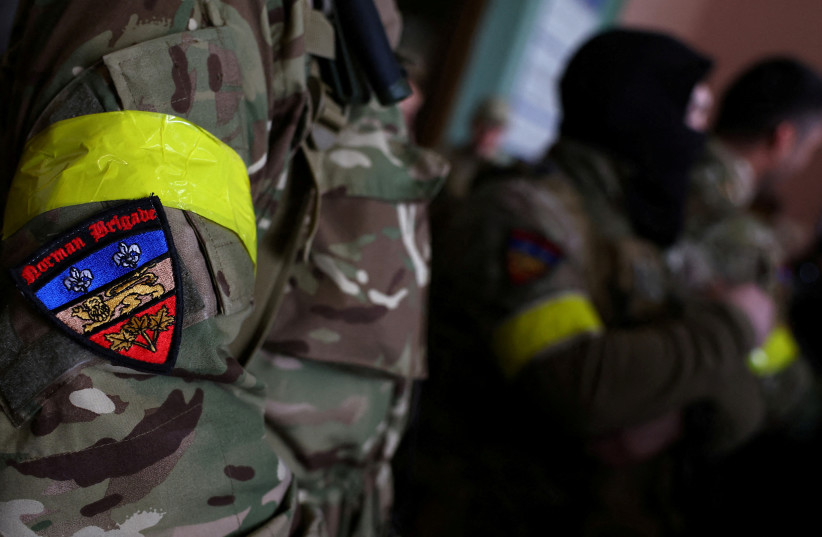Foreign mercenaries fighting for Ukraine are paid between 30,000 and 100,000 hryvnas ($820-$2,734 USD), according to a Sunday report by Russian state media agency TASS.
Russia’s Investigative Committee Chairman Alexander Bastrykin announced this based on a Kremlin investigation into the remuneration of foreign mercenaries fighting on behalf of Ukraine.
“Data has been established on the procedure for their recruitment, training, participation in hostilities and (their) monetary rewards ranging from 30 thousand to 100 thousand hryvnias,” said Bastrykin.
"The investigation has received information that the Kyiv regime, with the support of the collective West, is encouraging the participation of mercenaries in hostilities on the side of Ukraine, which is prohibited by international standards,” Bastrykin declared.
Foreign mercenaries in Ukraine
The Ukrainian military said that as of April 2022, roughly 20,000 foreigners from 52 countries have applied to enlist – including some Israeli nationals. Russia has repeatedly warned foreign fighters against joining the war, saying that foreign fighters will not be treated as lawful combatants.

"We want to give many thanks to all the nation of Israel, to the government of Israel, for helping us while we can fight against the Russians, in this difficult war," said one fighter in accented Hebrew in a May 2022 video explaining his decision to volunteer to help the Ukrainian armed forces.
As many as 20,000 foreign mercenaries are fighting alongside Russian forces in the Russia-Ukraine War according to comments from an anonymous European official in April 2022. This includes the Wagner group, a Russian paramilitary company heavily involved in Russian military operations around the world which has faced criticism for its brutal reputation.
As Bastrykin ramps up criticism of foreign mercenaries allied with Ukraine, the Russia-affiliated Wagner private military company continues to recruit fighters – though the UK Defense Ministry said that its convict recruitment program operated at a reduced scale in late 2022.
Michael Starr and Aaron Reich contributed to this report.
